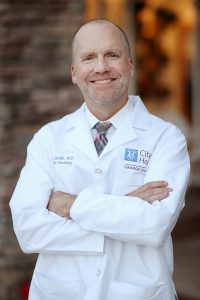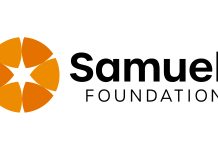
By Wade Smith, M.D., City of Hope Newport Beach Fashion Island
Have you scheduled your mammogram yet? Done a self-check in the mirror lately? If you haven’t, now’s the time to start.
There are several reasons to be proactive when it comes to your breast health. Here’s why you should be screened:
- Breast cancer is a significant health concern for women. It is the second-most common cancer (after skin cancer) and the second-leading cause of death for U.S. women.
- Screening increases the odds of early cancer detection. Regular breast cancer screenings make it more likely you’ll catch cancer early. That’s important because early detection provides more treatment options.
- You have risk factors for breast cancer. It’s particularly important to stay on top of your breast health if you have a family history of breast cancer, if you or a close relative has the BRCA1 or BRCA2 genetic mutation commonly associated with the disease or if you were treated with radiation therapy in the chest area at a younger age. Speak with your physician about your risk and the best screening schedule for you.
- You’re getting older. The risk of breast cancer increases as you age. Breast cancer screening with annual mammography should take place beginning at age 40. Some women with a higher-than-average breast cancer risk may start screenings earlier, as determined by their physician.
- It helps you spot the signs of breast cancer. Screening will help you stay on top of changes in your breast and identify common symptoms of cancer. Common symptoms include lumps or a thick feeling in the breast, a noticeable difference in the appearance of the breast, dimpled or puckering skin not unlike an orange peel, inverted nipples and scaly or peeling skin within the areola or breast.
- You’re an advocate for your own health. It’s empowering to take charge of your health. Preventive measures, such as breast cancer screenings, help you feel empowered and informed.
Breast cancer screening options
There are several breast cancer tools and tests available to help you stay on top of your breast health. They include:
- Self-check: A quick monthly self-exam of your breasts can help you identify changes in your breasts.
- Clinical exam: For most women starting at age 20, your healthcare provider should conduct a physical exam of your breasts once a year, such as during your well woman visit.
- Mammogram: When most people think about breast cancer screening, they probably think about a mammogram, which is an X-ray of the breasts. The 3-D version of mammograms is called breast tomosynthesis and it’s grown in popularity in recent years because it can capture more detailed images than a 2-D mammogram.
- Ultrasound: Much like an ultrasound for pregnancy, this screening tool uses sound waves to produce images. It can be used in conjunction with a mammogram for women with high cancer risk.
- MRI: An MRI provides more detailed images than a mammogram, so it’s often used in addition to a mammogram to screen for cancer in women with a high risk for the disease.
- Genetic testing: If you have a family history of breast cancer, your doctor may recommend genetic testing. This will help determine if you have a genetic mutation that makes you more susceptible to breast cancer.
The best defense against breast cancer is prevention and early detection before it causes any signs or symptoms. Make the choice to get breast cancer screening in consultation with your physician as an ongoing part of your overall health and wellness plan.
Wade Smith, M.D., is a medical oncologist specializing in breast cancer at City of Hope Newport Beach Fashion Island. For more information, visit https://www.cityofhope.org/location/newport-beach-fashion-island.




